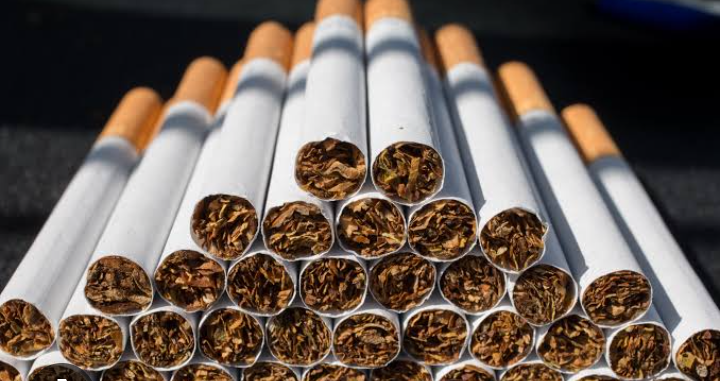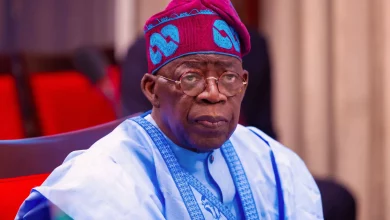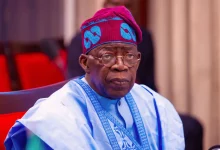COP10/MOP3: WHO, NATT Seek End to Tobacco-related Diseases, Deaths
As deaths from tobacco use, smoke hit 8 million globally

Ahead of the 10th edition of Committee of the Parties (COP10) and MOP3 conference slated for February 5-10, 2024 and February 12-15, 2024 in Panama, the World Health Organisation (WHO) and the Network for Accountability of Tobacco Transnationals (NATT) have underscored the need to end tobacco-related deaths and diseases worldwide.
Speaking during a Webinar and Media Workshop in the lead up to global Tobacco Treaty Intergovernmental Negotiations, otherwise known as COP10/MOP3, both organizations stressed the need for the 183 parties or over 90 percent of the global population to protect the present and generations from the consequences of tobacco consumption and exposure to smoking.
Speaking, Legal Officer, World Health Organisation’s Framework Convention on Tobacco Control (WHO-FCTC), Sabina Timco Jacazzi, who lamented that tobacco smoking and use of it associated products like e-cigarettes remain a huge threat to global public health, life and the environment.
She maintained that the cost of tobacco has become inestimable as over eight million lives are lost to tobacco-related ailments yearly, adding that every year, about seven million people die worldwide due to tobacco use, while about 1.3 million persons die from exposure to smoking.
“Besides the implementation of WHO-FCTC, which was included in Sustainable Development Goals (SDGs) target 3:a, there were protocols established to eliminate illicit trade in tobacco products. The first protocol to the WHO-FCTC and a treaty in its own right, entered into force on September 25, 2018 by 68 parties.
“Also, the governing body of the WHO-FCTC, made up of all the parties to the treaty held every two years with the resumed session of COP10 taking place in Panama from February 5-10, 2024,” she stated.
On Tobacco Industry (TI) tactics and interference to undermine public health, she explained that the industry uses legal threats and actions, intimidation, lobbying and influencing of policies, claiming public health roles and support through allies.
Others are controversial marketing gimmicks, Corporate Social Responsibility (CSR) activities, involvement in illicit tobacco trade, influencing science, as well as undermining national and international laws, adding that Article 5.3 of the WHO-FCTC clearly sets standards on implementation of public health policies with regard to tobacco control.
Tobacco Campaign Director of Corporate Accountability (CA), Daniel Dorado, who highlighted sections of the tobacco industry interference and marketing transparency, maintained that parties should insist on making Big Tobacco to pay for their ‘atrocities’, adding that his organisation and NATT have been insistent on preventing Big Tobacco from ‘destroying the planet.’
During the Webinar moderated by Founding Managing Editor of CNS (India), Shobha Shukia, he (Dorado) explained that the Make Big Tobacco Pay campaign had achieved the first in-person treaty meeting in six years, submitted declaration of conflicts of interest forms and strengthened Article 19 on liability in the agenda of the parties.
On his part, Executive Director of Vision for Alternative Development (VALD) in Ghana, Labram Musah, recommended that parties should democratize and ban the Tobacco Industry from undertaking corporate social responsibility activities and maintain a strong stance against TI interference.
Other recommendations are to facilitate the passing of pending tobacco control laws among the parties, creating awareness and capacity building in the public and political space, ensuring generational knowledge transfer and promotion of economically viable options, among others.
Executive Director, Corporate Accountability and Public Participation Africa (CAPPA), Akinbode Oluwafemi, noted that the latest data showed a global decline in smoking but warned that the tobacco industry was adopting new tactics to deceive government officials and ensnare the public.
He said: “We’re having a trend now where the industry is trying to position itself as part of the solution and not the problem. That is also similar to what we had at the climate conference (2023 UN Climate Change Conference-COP 28) where the fossil fuel industry promoted net zero and some other false solutions.
“What are the false solutions now being promoted on our continent, and possibly on the global level? We have seen the influx of novel products, for instance, e-cigarettes, and attempts by the tobacco industry to subvert the Ministry of Health that champions the FCTCT implementation in-country.
“They go through the Ministry of Trade and Investment and other agencies of government in order to get backdoor legal documents for their products, and with that has been the influx of media articles, influencers online and social media campaigns, among others.”
He, therefore, urged media practitioners to be on alert to conversations driven by the industry, adding that the tobacco industry is also increasingly using the so-called alternatives to attack the FCTCT process.











